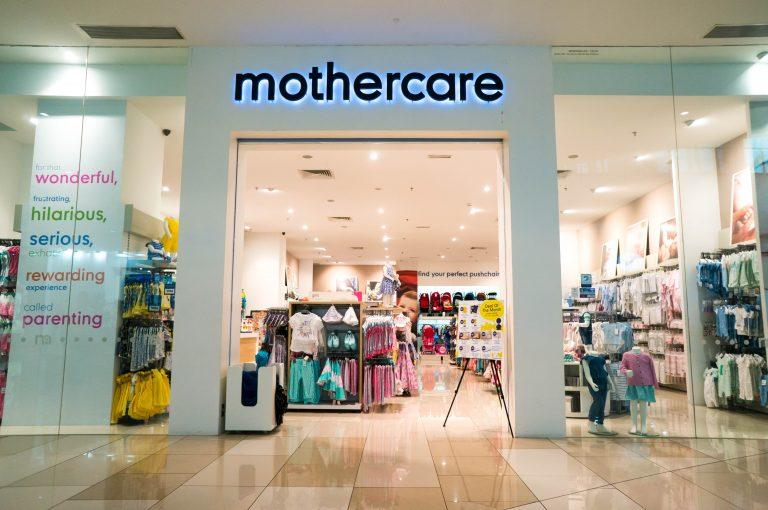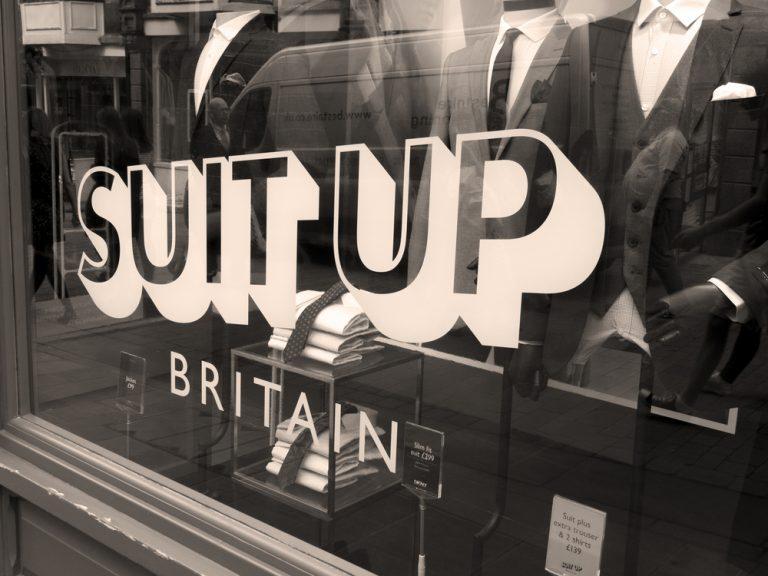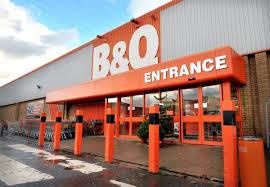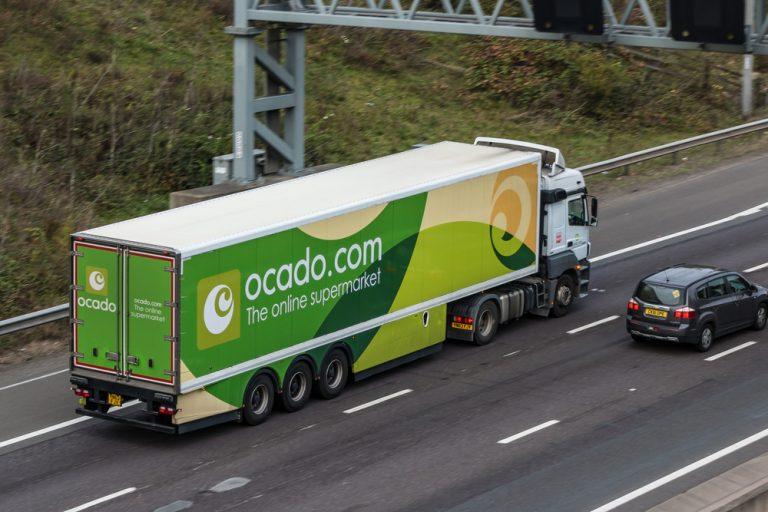“This performance again demonstrates the strength of the underlying business and was despite the transient issue of the HMRC review into Salary Sacrifice, which delayed sales at our PG Let’s Connect business into 2018.
“As we continue in the current financial year, the company is better placed than ever to realise the significant opportunity presented by the employee services market, which is being driven by increasing competition for staff in a tight labour market and recognition of the commercial value of investing in and retaining staff. This issue is common to organisations big and small, public and private all of which we are now very able to serve,” Scanlon added.
Shares in Personal Group are currently up 3.13 percent at 388.80 (0933GMT).
Personal Group profits fall, but dividend increase boosts shares
Employee services provider Personal Group (LON:PGH) saw profits fall in 2017, in direct correlation with the delayed roll-out of a salary sacrifice offering to Royal Mail Group and other customers.
Pre-tax profit fell to 9.6 percent to £9.51 million, reporting an Ebitda “marginally ahead” of expectations at £10.8 million. The company increased its dividend by 3.2 percent to 22.7p.
The group saw a 77 percent rise in software-as-a-service (SaaS) revenue to £2.7 million from £1.5 million the year before.
“As we continue in the current financial year, the company is better placed than ever to realise the significant opportunity presented by the employee services market,” chief executive Mark Scanlon said.
IGas share sink despite swinging into profit in 2017
British oil and gas developer IGas (LON:IGAS) swung into profit in 2017, supported by a hefty tax credit and an increase in oil prices.
The group reported a £15.5 million net profit for the year to end of December, compared with a loss of £32.9 million the previous year, with revenue jumping to £35.8 million from £30.5 million the year before.
The group’s performance was aided by a tax credit of £19.1 million as well as an increase in oil prices across the year. Adjusted EBITDA was £9.2m down from £10.2m.
Net production averaged 2,335 boepd for the year, but operating costs fell to $28.2 per boe from $28.8 per boe. IGas are expecting net production of between 2,300 – 2,400 boepd in 2018 and operating expenditure of $32.5 per boe.
Stephen Bowler, IGas’ CEO, commented: “We have sanctioned a number of projects, including Albury and Stockbridge, and would expect to see the benefits of these projects during the latter part of 2018.
“In the North West we are progressing our application at Ince Marshes and advancing further applications. It is our intention to appeal the decision of Cheshire West and Chester Council’s Planning Committee of 25 January 2018 to refuse planning consent for our application to test the Pentre Chert formation at Ellesmere Port.”
Shares in IGas are currently trading down 1.30 percent at 76.00 (0849GMT).
Mothercare shares up as talks progress “constructively”
Mothercare (LON:MTC) shares rose 5 percent at market open on Wednesday, after it said talks with lenders were progressing ‘constructively’.
The group are in discussions with lenders after a series of profit warnings left them in need of a turnaround plan. The group said on Tuesday that it had called in KPMG to advise them on the refinancing of the business, and discussions with all lenders are expected to conclude before the release of its results on the 17th May.
The lenders had agreed to defer the testing of its financial covenants, due 24 March, accordingly.
“As previously indicated, we are also exploring additional sources of financing to support and maintain the momentum of our transformation programme and we are engaged in preliminary discussions on securing such additional financing,” Mothercare said.
Mothercare shares have fallen around 87 percent over the past year. Shares are currently trading up 5.25 percent at 16.52 (0840GMT).
Moss Bros shares plunge 25pc after profit warning
Men’s clothing retailer Moss Bros (LON:MOSB) saw its share price drop by a third on Wednesday morning, after cutting its dividend and warning on its full year figures.
The group said it now expected to deliver a profit figure ‘materially lower’ than market expectations, slashing its dividend to 1.97p per share, bringing the total dividend for the year to 4p instead of the 5.89p the previous year.
The company said it had been hit by a lack of stock availability, challenging hire sales and a more cautious consumer environment.
“The beginning of the year has been hampered by short-term stock delivery issues caused by the consolidation of our supplier base,’ chief executive Brian Brick said.
“The resulting stock shortage has undoubtedly driven a significant shortfall in sales, which will continue until late Spring. In common with many UK retailers, the year ahead looks like being a very challenging one and we have taken action early to be sure we protect the underlying strength of the business.’
“We do believe continued investment is essential to ensure we retain a sustainable point of differentiation and that we leverage our distinct position on the high street,” the company concluded.
Moss Bros shares are currently trading down 26.13 percent at 43.29 (0833GMT).
Kingfisher shares fall on uncertain outlook, despite strong figures
B&Q owner Kingfisher (LON:KGF) saw shares sink over 6 percent at market open on Wednesday, after it warned that the UK market looked more uncertain going forward.
The warning came despite the group beating forecasts and reporting a 1.3 percent rise in annual profit, with like-for-like sales in the UK and Ireland growing by 0.6 percent to £5 billion. Sales in France, where the group owns the Castorama and Brico Depot chains, fell by 3.5 percent to £4.39 billion.
Total sales in B&Q fell by 5.3 percent to £3.49 billion due to store closures, with sales at Screwfix performing better and rising 10.1 percent to £1.56 billion after strong growth from the “specialist trade desks exclusive to plumbers and electricians, strong digital growth and continued roll out of new outlets. ”
Kingfisher raised its full-year dividend by 4 percent to 10.8p per share from 10.4p
The effective tax rate (ETR) rose 30 percent for the year, up from 26 percent after a French tax surcharge of approximately £20m.
In a statement, the firm commented on its outlook going forward:
“In the UK it is more uncertain, and in the fourth quarter both B&Q and Screwfix experienced softer sales. In France, we are encouraged by the market backdrop although it is volatile, whilst in Poland the market remains supportive.”
Kingfisher shares are currently trading down 6.43 percent at 316.00 (0813GMT).
Ocado faces £1.5m hit to profits following ‘beast from the east’
Online grocer Ocado (LON: OCDO) faced a £1.5 million dent in profits after the group was forced to cancel orders during “the Beast from the East”.
With heavy snow and winter storms, depots in Oxford, Kent and Bristol were forced to accept fewer deliveries in the “most trying conditions”.
The weather led to the group having to lose tens of thousands of orders and give undelivered food to food banks, leading to the grocer losing one percent in sales.
“I’ve never seen weather like this in the time I’ve been at Ocado but despite that, we delivered to 296,000 customers in pretty extreme conditions,” said Duncan Tatton-Brown, Ocado’s finance director.
Not only did Ocado’s profits suffer from the extreme conditions seen in the UK, but the quarter’s results also took a hit from the increase in costs.
Ocado reported a rise in retail revenues by 11.7 percent to £363.4 million for the first quarter to March 4. The snowy conditions and storms took off one percent of profits in the final week.
The average orders per week increased by 11.1 percent to 280,000.
“We operated at maximum capacity for most of the quarter and were impacted by the winter storms that caused widespread disruption during the final week,” said the chief executive, Tim Steiner.
“I would like to take this opportunity to thank all my colleagues who nonetheless succeeded in delivering nearly 300,000 orders over the last week of the quarter, often in the most trying conditions.”
The group still managed to meet expectations, with Steiner highlighting the group would have succeeded them if it was not for the week of bad weather.
Ocado recently signed a deal with Canadian retailer Sobeys, as the group expands into North America. The group is also working with Groupe Casino (FRA: CAJ), the supermarket giant based in France.
Brexit: May agrees on transition deal
Citizens from the EU who arrive in Britain during the Brexit transition period will have the right to stay indefinitely.
After intense talks in Brussels, it was agreed that freedom of movement can continue until the end of 2020. EU citizens and their families will be able to claim residency.
Speaking in Brussels, Michel Barnier, the EU’s chief Brexit negotiator, said that people from the EU who arrive in the UK during transitions “will receive the same rights and guarantees as those arriving before Brexit”.
David Davis, the Brexit Secretary, said: “Just as we’re giving certainty to businesses, we’re also providing the same for citizens.”
The same will apply to British citizens who move to the EU.
Barnier referred to the deal as “a decisive step” for Britain and the EU.
“We were able to agree this morning on a large part of what will make up an international agreement for the ordered withdrawal of the UK,” he added.
Not all were happy with the progress. Nigel Farage, the former UKIP leader, said May was backing down to Brussels and called her an “appease”.
“After vaunting her so-called red lines she quickly rubs them out under EU pressure,” he said, “She’s like the Duke of York marching the troops to the top of the hill to march them down again.”
Iain Duncan Smith also criticised the government, saying: “there does seem to be a real concern … It appears that at least through the implementation period nothing will change and I think that will be a concern and the government clearly has to deal with that because a lot of MPs are very uneasy about that right now.”
A joint withdrawal deal was published on Monday, which is 75 percent is agreed on.
According to the report, the UK will keep the benefits of the single market and customs union for “near enough to the two years we asked for”, said Davis.
Facebook shares fall 5 percent after data revelations scandal
Facebook shares fell 5 percent on Monday, as investors reacted to the social media platform’s involvement in a data scandal.
According to the Observer, Data firm Cambridge Analytica, which collaborated worked with Donald Trump’s election team and the Leave Brexit campaign, harvested the profiles of millions of Facebook’s US voters.
A whisteblower revealed to the publication about how Cambridge Analytica used the personal information of users in early 2014, without authorisation, to facilitate the profiling of individual US voters, for targeted personalised political advertisements.
It has been estimated that as many as 50 million users personal information had been utilised, calling into question how truly accountable social media platforms are in the digital age.
Christopher Wylie, who worked with a Cambridge University academic to obtain the data, told the Observer: “We exploited Facebook to harvest millions of people’s profiles. And built models to exploit what we knew about them and target their inner demons. That was the basis the entire company was built on.
Amid the revelations, both Cambridge Analytica and Facebook are being investigated as part of an inquiry into data and politics by the British Information Commissioner’s Office.
Alongside this, the Electoral Commission is also looking into Cambridge Analytica’s role in the EU referendum.
“We are investigating the circumstances in which Facebook data may have been illegally acquired and used,” commented information commissioner Elizabeth Denham.
“It’s part of our ongoing investigation into the use of data analytics for political purposes which was launched to consider how political parties and campaigns, data analytics companies and social media platforms in the UK are using and analysing people’s personal information to micro-target voters.” She added.
Alongside inquires in the U.K, across the pond, legislators in the U.S are also calling for greater transparency and investigation into the data breach allegations.
“It’s clear these platforms can’t police themselves,” tweeted Senator Amy Klobuchar, a Democratic member of the Senate Judiciary Committee.
https://platform.twitter.com/widgets.js Whilst Facebook have dismissed accusations of a ‘data breach’ per se, shares in the company continued to plunge on Monday. Shares are currently trading -5.84 percent as of 14.43 PM (GMT).Facebook breach: This is a major breach that must be investigated. It’s clear these platforms can’t police themselves. I’ve called for more transparency & accountability for online political ads. They say “trust us.” Mark Zuckerberg needs to testify before Senate Judiciary.
— Amy Klobuchar (@amyklobuchar) March 17, 2018
Melrose offers £1bn boost to GKN pensions
Melrose has announced it has offered an additional £1 billion boost to pensions as part of its takeover bid for engineering giant GKN.
This comes after GKN rejected what Melrose said last week was its ‘final offer’ of £8.1 billion.
GKN previously rejected a £7.4 billion bid made back in January, which it dismissed as “opportunistic”.
The engineering giant has been the subject of a series of hostile takeover bids by Melrose following a number of profit warnings late last year.
Politicians had been weary of the potential takeover, given Melrose’s tendency to break-up and sell companies that it acquires.
Moreover, MP’s voiced concern for national security, given GKN’s role in providing defence capabilities to the U.K.
The additional pension provision may address concerns raised by the UK pensions regulator and MP’s who called for the deal to be blocked.
Melrose chairman Christopher Miller commented:
“The proposal we have made to the trustees of up to £1 billion of contributions under our ownership is a clear example of what Melrose does which is good for pensioners and shareholders alike and shows we are a good custodian for all stakeholders.
Melrose’s measured approach represents certainty of strategy, value and management. We strongly urge GKN shareholders to accept our offer without delay.”
Nevertheless, GKN remain firm in their opposition to the bid.
In a statement, Chief Executive Anne Stevens pointed towards the firm’s agreement to sell its driveline business to Dana, a US company.
“Since announcing the deal to bring GKN Driveline and Dana together, I have had the opportunity to speak to many of our shareholders and explain why I am so excited about this prospect.
“The complementary nature of the two businesses and our shared commitment to R&D and long term investment creates a fantastic opportunity to build a world leading company and create meaningful shareholder value by delivering $235 million in synergies.
“The listing on the London Stock Exchange will make it possible for more of our shareholders to participate in the expected value creation opportunity from the combined Dana and GKN Driveline business.”
The merged company will have a secondary listing on the London stock exchange alongside a a primary listing in New York, which may help to appease GKN investors.
Boris Johnson faces growing pressure over axed garden bridge
Pressure is growing for Boris Johnson as the Labour party has written to the foreign secretary demanding him to account for his role in the abandoned London garden bridge project
Andrew Gwynne, the shadow communities secretary, wrote to Johnson and challenged his claims that the journalist who criticized the £46 million project had a personal dislike of the bridge’s designer.
Gwynne asked Johnson to provide evidence for the claims he made by journalist Will Hurst, the managing editor of the Architects’ Journal.
The foreign secretary has come under fire over his role of the garden bridge. £46.4 million of public money was spent on the project, but construction never took started.
Johnson has blamed London’s current mayor, Sadiq Khan, for the losses after he cancelled the project.
While he was the London mayor, Johnson championed the designs for London’s newest bridge and said: “I think what I might have done in retrospect, the obvious thing is I would have tried to get it going faster, earlier.”
Speaking earlier this month before the London assembly’s oversight committee, Johnson criticised Hurst, a journalist who has written several stories uncovering problems with the project.
Johnson said the stories were “motivated to the best of my knowledge by a dislike that the Architects’ Journal journalist concerned had for Thomas Heatherwick, who is not conceived of as being a proper architect, and is therefore somehow worthy of abuse”.
In the letter, Gwynne wrote that the foreign secretary should answer questions on “the role played by your office in the reckless decision to release public funds for the construction contract”
“Do you have any evidence to support your public claim that articles published by Mr Hurst are motivated by a dislike of Thomas Heatherwick, if not, do you want to withdraw this comment and apologise?” he added.










